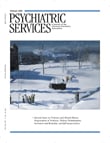The Science of Addiction: From Neurobiology to Treatment
In this book, Carlton Erickson, a distinguished professor of psychopharmacology, has his biases—as does this reviewer. At the outset, Erikson eschews the concept of behavioral addiction such as gambling, Internet, and shopping addictions—a notion that has been increasingly accepted among clinicians and investigators. The basis for the distinction is soon made clear in that the author's bias for understanding addiction, as the subtitle reveals, is a neurobiological one, the principal focus of the book.
The author goes out of his way to express his dislike for the word addiction, preferring the designations alcohol or drug dependence and repeatedly distinguishing between abuse and dependence. He similarly dismisses the words "disorder" and "illness" to describe the addictions, insisting that addictions are "brain diseases" rooted in the mesolimbic dopamine "pleasure pathway or reward system." Little wonder then that over the past six decades addiction medicine and psychiatry have tended toward polarized concepts that are pitted against each other.
My bias resides in a conviction, based on four decades of clinical investigative work, that there are complex psychodynamic factors at least as compelling as biological ones to explain the powerful nature of addictive disorders ( 1 ). Erickson's perspective is in the mainstream of contemporary addiction medicine and clearly describes what addictive substances do to the brain. This is the main strength of this book. What is left out, and for which there is little or no reference, is why drugs are appealing to people. If Erickson is to be faulted for this omission so should the many neuroscientists he cites and refers to who similarly ignore very important psychosocial factors involved in addictive vulnerability.
In fairness to Erickson, he does provide some relief from a strictly biological approach by conceding that in some cases psychosocial factors protect against addiction or that most addiction researchers have "never knowingly talked to an addict." Furthermore, citing alloplastic theory ( 2 ), Erickson allows that drugs can relieve painful states and thus be reinforcing—"negative reinforcement." He indicates that one of his reasons for emphasizing addictions as a disease is to undermine the stigma and antipathy associated with addictions, including dependence on alcohol.
All the bases are covered in defining drug abuse, tolerance, and physical dependence in precise, clear language, as are the criteria for diagnosis of abuse and dependence. Similarly, after reviewing basics of brain structures and chemistry, Erickson describes how they apply to chemical dependence, genetics, and each class of abused drugs. The author concludes with a chapter on treatment based on the disease or dependency model and a chapter on future directions in addictions research.
In many respects this book is a straightforward meritorious description of the neurobiology of addiction living up to its billing on the book jacket as a jargon-free, clear review of the neuroscience entailed in drug dependence. It is mainly appealing to those individuals and students who are interested in this aspect of addictive disorders. In other respects the book is maddeningly reductionistic and simplistic in explaining why substances can be so compelling and destructively consuming.
1. Khantzian EJ: Treating Addiction as a Human Process. Northvale, NJ, Jason Aronson, Inc, 1999Google Scholar
2. Koob GF: Alcoholism: allostasis and beyond. Alcoholism: Clinical and Experimental Research 27:232–243, 2003Google Scholar



